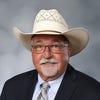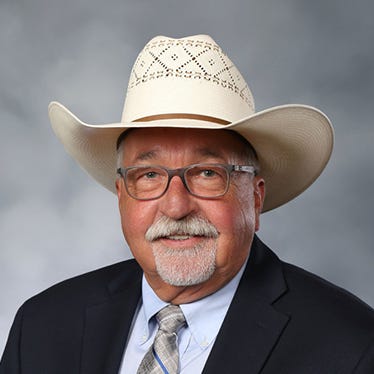August 26, 2022

One of my favorite things to read each week when I receive my hometown newspaper is a section where they reprint items that have appeared in that newspaper over the past century — and before. Last week, I was intrigued by an item from the early 1900s that had informed the readership of that time, “All anyone can talk about is the drouth.”
I was a freshman in college before my English composition professor corrected my spelling of drouth to drought. She deducted points from my essay and caused me great confusion concerning my prior education and upbringing. You see, I am a hillbilly, raised by hillbillies who trace their ancestry back through many generations of hillbillies in the southeastern United States. Those early Crownovers pronounced the word that describes a period of time without much rainfall as drouth, with a th at the end. Plus, many people of that era never learned to read (my father included), so only the spoken form of many words were passed on to each successive generation. Ergo … drouth.
College educators enlightened me to many words that I had either been mispronouncing or misspelling for my entire life. It was an embarrassing time for me to find out in an animal husbandry class (now, they are called animal science classes) that there is no such thing as a muley calf to describe one born without horns. Rather, the word “polled” is the accepted description.
A castrated male hog is called a barrow, yet for the first 18 years of my life, I only heard it pronounced as a bar hog. No wonder some of my professors thought I was mentally challenged.
My three college roommates were all from up north, and they stayed confused by my language for the years that we lived together. I can vividly remember when one of my friends had lost his car keys. I told him not to worry because “they had to be around here summers.” When he said he needed to find them long before summer arrived, I realized that my mispronunciation was simply the hillbilly word for “somewhere.”
Another time they had a chuckle at my expense was when I told them I had prepared “rosineers” for supper. Again, it was an epiphany for me to learn that the enunciation I had used for years actually meant “roasting ears” of corn.
I kept those northern boys entertained for years with words like the following:
Haint. “On Halloween, we should dress up like haints and scare all the city people.”
Dicker. “You could have gotten that truck quite a bit cheaper if you’d just dickered on the price.”
Seagrass string. “Does your daddy use wire or seagrass string in his hay baler?”
I can still remember my major professor in graduate school, after reviewing the first draft of my doctoral dissertation, using what must have been two entire red pens to enter all the corrections, then summarizing on the last page with, “Where the heck did you go to school?”
Eventually I passed, but it was still firmly engrained in my mind when I overheard the head of the department tell another professor, “Yeah, Jerry’s a good person and will probably make a good teacher; he’ll just never be a writer.”
Crownover raises beef cattle in Missouri.
About the Author(s)
You May Also Like






